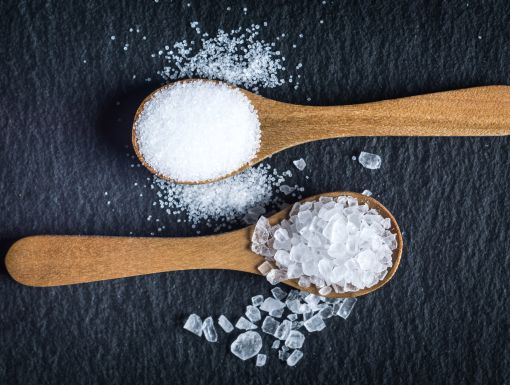
Cold “Heart” Facts About the Foods You’re Eating
It’s no secret February is all about hearts — but not just the candy kind. It’s also American Heart Month, a time the nation turns its attention to keeping families and communities free from heart disease, the primary killer of Americans.
Cardiovascular disease (heart disease and stroke combined) kills about 2,300 a day. Obesity in both youth and adults is at an all-time high and youth are being diagnosed with heart disease earlier than ever. Consider the facts:
- Heart disease kills more people than all forms of cancer combined.
- Heart attacks affect more people every year than the population of Dallas, Texas.
- 83% believe that heart attacks can be prevented.
- 72% of Americans don’t consider themselves at risk for heart disease.
- 58% put no effort into improving their heart health.
In order to prevent cardiovascular disease, you should make healthy lifestyle choices such as getting adequate physical activity, maintaining heart-healthy diet and managing blood pressure. You should also take the time to have the following numbers checked this month:
- Blood Pressure
- Cholesterol (with LDL & HDL)
- Triglycerides
- Blood sugar
- Body Mass Index
And as you might have suspected the four-letter word SALT has a little something to do with a heart healthy diet and lifestyle.
Salt makes your body hold on to water. If you eat too much salt, the extra water stored in your body raises your blood pressure. The higher your blood pressure, the greater the strain on your heart, arteries, kidneys and brain. This can lead to heart attacks, strokes, dementia and kidney disease.
Salt in food
Salt is found in almost every food we eat. Some foods contain very low amounts of naturally occurring sodium, like fruit and vegetables. Manufactured foods can contain high amounts of sodiumwhen manufacturers use salt as a flavor enhancer or preservative. What most people don’t realize is that more than 75% of sodium consumption comes from processed foods and eating out - not the saltshaker.
8 Foods to Lower Blood Pressure
Consuming less sodium may be important to help slash blood pressure levels, but eating more of these foods is good for your heart and arteries, too.
- Spinach:Many leafy greens, including everything from arugula and kale to spinach and collard greens, contain potassium and magnesium, which are key minerals to control blood pressure. A potassium-rich diet helps the body become more efficient at flushing out excess sodium, which can raise blood pressure. Magnesium also helps promote healthy blood flow.
- Broccoli:This cruciferous veggie is another good source of the blood pressure-regulating minerals magnesium, calcium and potassium.
- Unsalted Pumpkin Seeds: Incorporating pumpkin pulp or seeds into a healthy diet may help reduce blood pressure levels, according to a recent study by the American Heart Association.
- Purple Potatoes: A daily dose of purple potatoes served plain may help your heart. That is, if you steer clear of the deep fryer and fatty toppings. Researchers say the blood pressure-lowering effects are likely due to the high concentration of antioxidants found naturally in potatoes.
- Dandelion Greens: Dandelion may lower blood pressure due to their diuretic effect and potassium content. However, very little formal research has been conducted to support this claim.
- Shiitake Mushrooms: Shiitake mushrooms are rich in a chemical called eritadenine, which seems to block the activity of an enzyme that constricts blood vessels.
- Beans:A daily cup of peas, lentils, garbanzo beans, or beans can keep your blood pressure in check and even lower it. Legumes and beans are big on fiber and can help ward off coronary heart disease. Just make sure you buy dried beans or no-salt added canned beans.
- White Fish: Research has shown that consuming fish that has a high omega-3 content can help lower blood pressure.
Making small, sustainable changes to your diet can go a long way to lower your blood pressure and increase your heart health. To schedule an appointment with an Ochsner nutritionist, click here.



